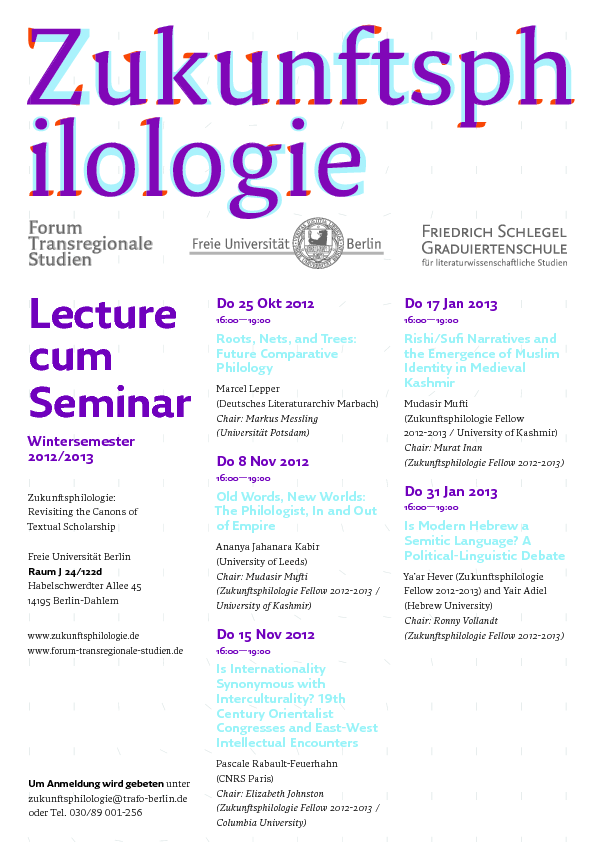Abstract
The international scientific conferences developed as a new form of scientific communication in the middle of the 19th century and greatly contributed to the rise of ‘large-scale science’ - or, to use the words of Theodor Mommsen, the "Grossbetrieb der Wissenschaft" [the great factory of knowledge]. With the establishment of the International Congress of the Orientalists in 1873, the study of the Orient was no exception to this general trend of large-scale scholarship. Devoted to the study of the Orient, an extra-European cultural and linguistic area, it is reasonable to presume that the International Congress of the Orientalists was a particularly ideal example of how scholarship going international could promote interculturality and lead to fruitful cultural transfer. What I would like to show is that the intercultural dimension of the Congress was in fact limited in different respects, and that these limitations were partly unconscious, partly deliberate. The Congress certainly was instrumental in developing international cooperation and promoting the dialog betweenvarious Oriental cultures as well as between the latter and the Occident. But until World War I, it took place almost exclusively on the European continent and was very much dependent on the European traditions of Orientalist scholarship. Even the universalistic claims of the participants should be understood in this perspective. In the colonial context of the late 19th century, the question of the cultural bonds between Orient and Occident, or of the possibility or necessity to take the scientific traditions and knowledge of the Oriental countries into account was a very sensitive subject. The debates onsuch matters reveal the moral and political dimensions of scholarly work.
Is Internationality Synonymous with Interculturality? 19th Century Orientalist Congresses and East-West Intellectual Encounters
Pascale Rabault-Feuerhahn (CNRS Paris); Chair: Elizabeth Eva Johnston (Zukunftsphilologie Fellow 2012-2013/ Columbia University)
Freie Universität Berlin, Raum J24/122d, Habelschwerdter Allee 45, 14195 Berlin

Seminar text:
- Ramkrishna, Bhandarkar (1887):My visit to Vienna Congress (pp. 72-95)
Pascale Rabault-Feuerhahn is a tenured researcher at the Centre national de la recherche scientifique in Paris, in the research unit “Pays germaniques: transferts culturels”. After she graduated in German studies (Sorbonne and Ecole normale supérieure) and Modern Indology (Ecole des langues orientales), she completed her PhD on the history of Indology and comparative linguistics at Université Aix-Marseille I, (2005). Her areas of specialization include the history of the human sciences, especially the history of Oriental philology. The ethnographical and anthropological aspect inherent to the philological work is a major focus of her research. She currently works on the history of the comparative method in the human sciences, connected with the development of Oriental studies. In a more contemporary perspective, she also analyzes the reconfiguration of the comparative paradigm in the context of postcolonial studies. Pascale Rabault-Feuerhahn is a member of the Zukunftsphilologie Working Group.Her publications include L’archive des origines. Sanskrit, philologie, anthropologie dans l’Allemagne du XIXe siècle (Paris, Cerf 2008) and Itinéraires orientalistes entre France et Allemagne (Revue germanique internationale 6/2008).

